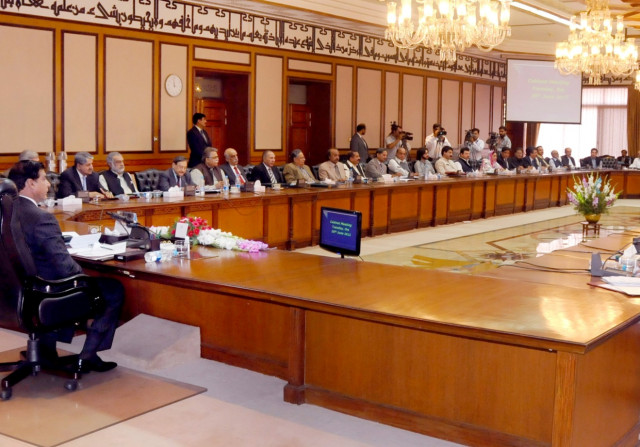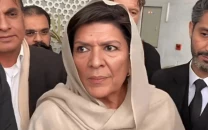Govt to enhance minority quota in legislatures
Cabinet forms committee to propose exact increase in minority representation in Parliament and provincial assemblies.

The cabinet has approved an increase in the representation of minority communities in the federal and provincial legislatures of the country.
In a meeting on Wednesday, the cabinet in principle approved an increase in seats reserved for non-Muslims in the legislatures in proportion to their population. Prime Minister Raja Pervaiz Ashraf presided over the meeting.
The cabinet also formed a committee which will recommend the exact increase in the minority quota commensurate with their population. It will also work out a constitutional amendment for this purpose.
The ministers for law‚ interfaith harmony and religious affairs will be members of this committee. It will submit its recommendations in the next cabinet meeting.
Minister for Interfaith Harmony Dr Paul Bhatti had demanded that representation of minority communities in Parliament and provincial assemblies be increased in proportion to their current population.
PM receives apex court letter
At start of the meeting, Premier Ashraf informed his cabinet colleagues that he has received a letter from the Supreme Court registrar asking him for the government’s position on the implementation of the court’s ruling on the now-defunct National Reconciliation Ordinance (NRO).
He sought the law ministry’s opinion on the matter. However, Ashraf said since the law secretary was recently appointed he needed time to study the case before coming up with a legal opinion.
The apex court had directed the government to reopen all cases dropped under the NRO after the controversial legislation was struck down in 2009.
Ashraf’s predecessor was convicted for contempt of court and subsequently disqualified after he refused to write to the authorities in Switzerland seeking reopening of a dormant graft case against President Asif Ali Zardari – which was also dropped under the NRO.
Ramazan and loadshedding
The cabinet also reviewed the grueling energy crisis and decided that all the four provinces would equally share load-shedding during the holy month of Ramazan.
The government would ensure uninterrupted electricity supply at the time of Sehar, Iftar and Taraweeh.
Water & Power Secretary Zafar Mehmood briefed the cabinet on the current state of power generation and its consumption.
According to him, the shortfall has been reduced by 3,500 megawatt and another 2,000 megawatt will be added to the national grid by the end of this year.
The federal information minister endorsed the secretary’s claim regarding improvement in the electricity situation.
“The 3,500MW target has been achieved … the next goal is to produce an additional 15,000MW,” Qamar Zaman Kaira told reporters after the meeting.
Denying a step-motherly treatment with Punjab vis-à-vis electricity supply, Kaira said the province “is consuming 66 per cent of the country’s total electricity despite having the generation capacity of 800MW.”
Kaira also said the cabinet has endorsed the decisions taken by the Economic Coordination Committee in its July 3 meeting.
The cabinet approved a special Rs2.5 billion budget for subsidies on food items and other common commodities through Utility Stores, according to the minister.
The premier also directed the ministry of industries to open Utility Stores in tribal regions before the start of Ramadan.
Published in The Express Tribune, July 12th, 2012.



















COMMENTS
Comments are moderated and generally will be posted if they are on-topic and not abusive.
For more information, please see our Comments FAQ